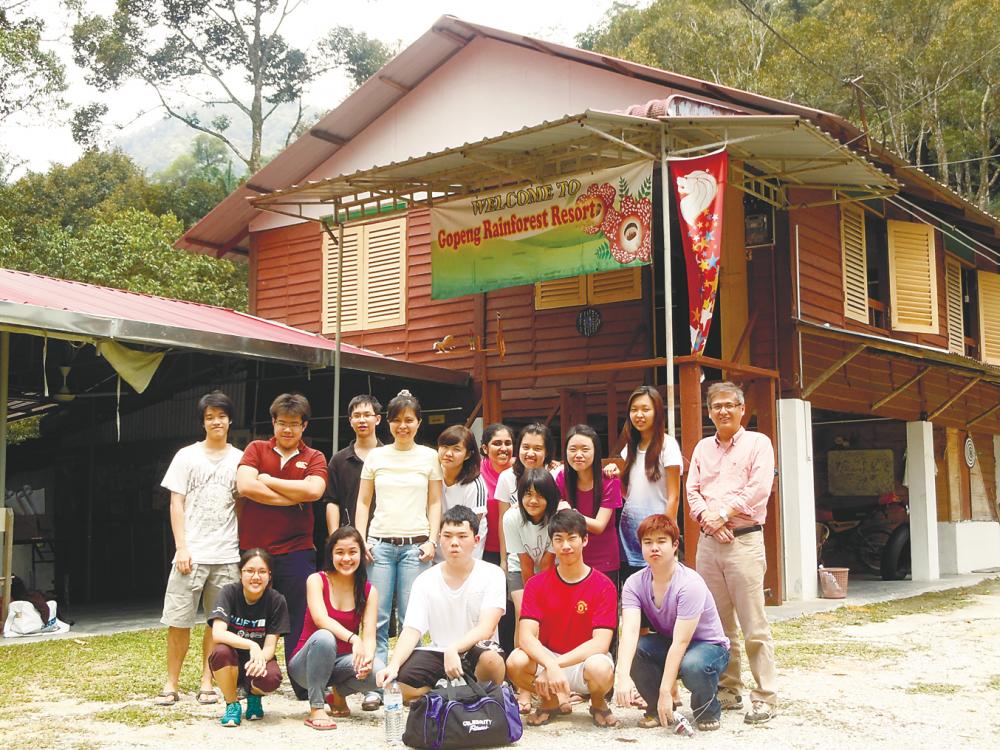CAN field trips help students be more engaged in learning? Monash University Malaysia School of Business’ senior lecturer, Dr. Patricia Lau and dean of the Australia Federation of Business School, Prof. Christina Lee share their view.
The rainforest as a classroom
Two three-day field trips were facilitated by Lau and DKSH Hong Kong Limited’s HR consultant, Dr. Ho Chye Kok - one to the Belum Rainforest and the other to Gopeng Rainforest. The idea was to take students beyond conventional learning in the classroom.
“The goal of the field trips was to understand the connection between business management and sustainability. We chose the rainforest as students were learning about the impact of business decisions relating to eco-tourism, hydroelectric dams, logging and forestry,” Dr Lau explained.
Those on the field trips got a chance to explore Malaysian rainforests to understand its ecosystem and importance.
From extrinsic to intrinsic motivation
Two years on and Lau and Lee observed that of the 12 students who completed both voluntary trips, seven developed the highest degree of motivation - intrinsic motivation. This observation was part of what led Lau and Lee to be convinced that external influence was needed for students to become engaged in activities.
A theory on motivation called organismic integration states that there are four kinds of extrinsic motivation. The lowest degree is said to be “external” - being driven by reward or punishment. The next is “introjected”, which the students initially showed when they engaged in learning activities to gain approval from their peers. The third and fourth degrees of extrinsic motivation - “identified” and “integrated” - are said to occur when students grasp the value of learning. And it is only from these stages that they begin to move into being intrinsically motivated.
Before long, several more students showed signs of intrinsic motivation, where they became self-motivated to learn. The question in mind next is what caused this change?
Basic ingredients for motivated learning
An engaged student is said to demonstrate two kinds of competencies - emotional and cognitive. The first comprises the ability to express feelings, read others’ feelings, and manage emotions. The second - the ability to reflect on information and apply it to different situations.
These competencies are fostered through five elements:
* self-efficacy - the belief in one’s ability to succeed at a task;
* social support - helps increase the confidence in one’s ability to succeed at a task in which facilitators can provide students with the necessary knowledge to gain confidence or peer encouragement could also help;
* group harmony - social support also motivates students to preserve group harmony which helps create an atmosphere conducive to learning and a free exchange of ideas where everyone’s opinion matters and we learn to take criticism openly without being offended;
* voice - with all the above, students develop their “voice” and are able to “bring something to the table” by sharing constructive ideas with the intention to improve; and
* self-reflection.
The lasting benefits of field trips
Lau and Lee further discovered that after two years, the students continued to practice what they learned, whether in their new classes or at their places of work. They developed a “hunger to learn”.
A student participant wrote, “I thought management was all about theory, which I felt was boring. Now I realise that it can be used in different situations. Personally, learning outdoors is definitely better than learning just through text books.”
Additionally, it was found that during field trips, relationships are formed. “Students were able to engage and form close and lasting friendships as they spent time together. In contrast, while classroom learning is important, it confines relationships,” Lau shared.
Implications for Malaysian education
Malaysia is a “high power distance culture” in which teachers are seen as authoritative and students are passive learners who are expected to be “seen but not heard”. Lau, Lee and Ho suggest that educators, instead of being authoritative figures, facilitate and encourage learning outside the classroom.
The above article is by courtesy of Monash University Malaysia. For more information on courses and programmes at the university, visit www.monash.edu.my













